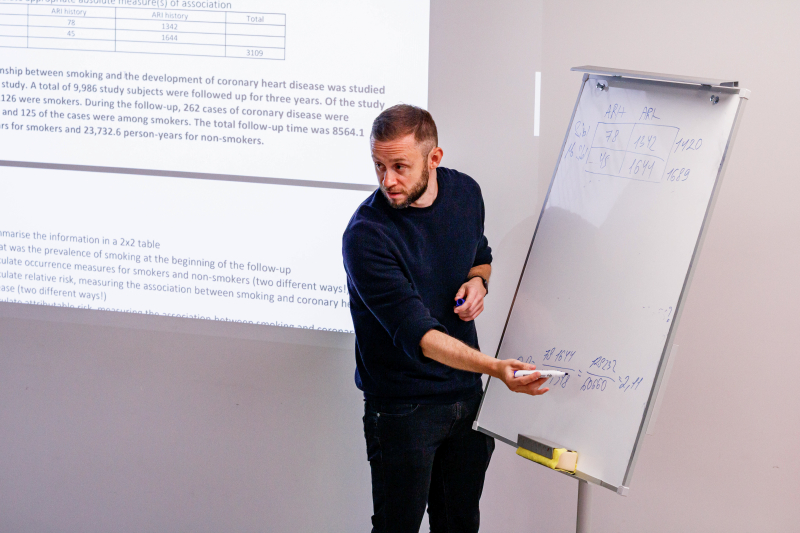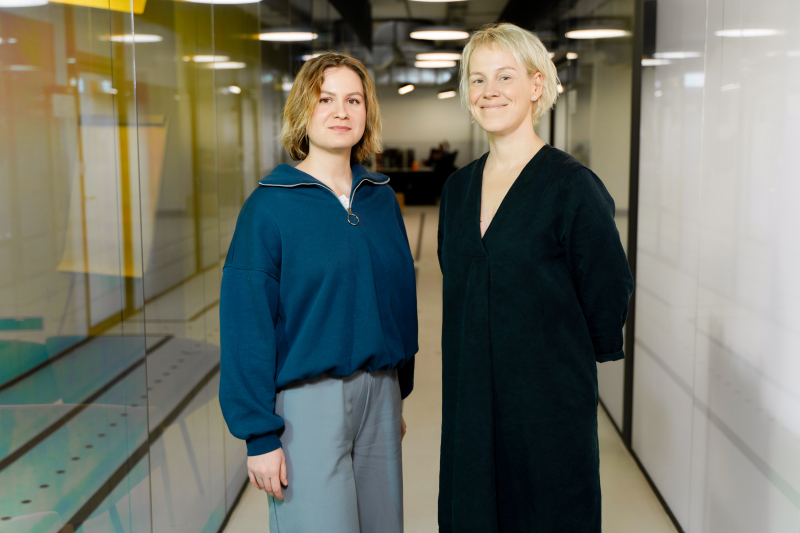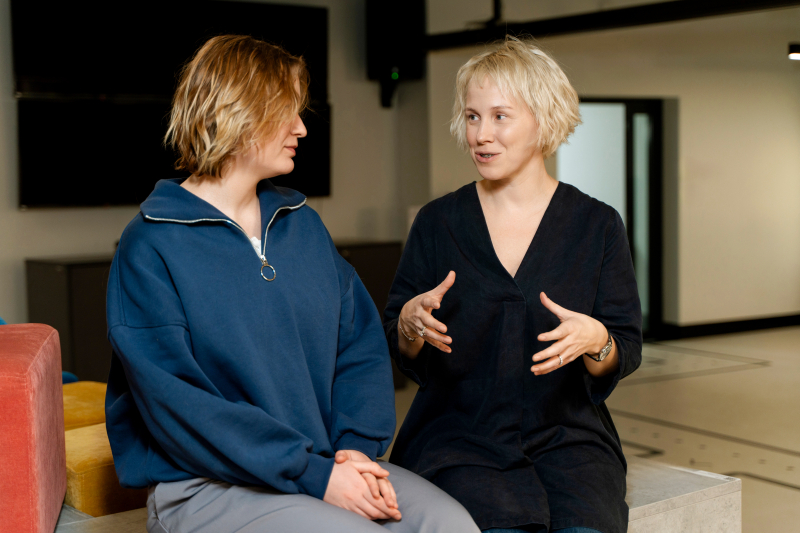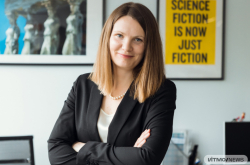Evgeniya Sokolova (Patrakeeva) is an endocrinologist with 19 years of experience. She heads the St. Petersburg branch of the Fomin Clinic, teaches endocrinology at St. Petersburg State University, and has founded Rule 15, an informational project for people with diabetes.
While endocrinology is a trade known to anyone, with public health sciences things are different. What do experts in this field do and where are they needed?
Public health scientists are professionals who study, prevent, and manage health issues on the scale of communities or even populations. They analyze the spread of illnesses and the needs of healthcare systems to develop programs that will improve public well-being.
First of all, such specialists are widely educated and thus capable of using their competencies to improve a community’s health and well-being in specific situations. For instance, a public health scientist can suggest a way for office workers to introduce regular physical exercise into their routine: from regulated sports breaks to developing optimal fitness spaces in the workplace. They can also design a way to maintain mental health in the workplace through counseling and stress-reduction programs. Another example: organizing access to healthier food options through higher quality food and consultations with dietitians.
Public health specialists can also plan and execute epidemiological studies, work at clinics, corporations, and state bodies, or even launch medical startups.
On a higher level, public health sciences offer a way of thinking and an understanding of how to change the world for the better. That’s why our Master’s program includes theoretical and practical courses, as well as international practical training. Our lecturers are world-renowned experts who help our students acquire critical thinking that is vital for their trade. We are proud to have created an environment that supports openness and collaboration – our students develop projects together, plan studies, and partake in discussions. Through feedback, the program is constantly evolving, which also highlights the importance of students’ opinions and improves the quality of education.
Where did you first hear about this Master’s program?
I learned about it from Anton Barchuk (guest lecturer, research supervisor, and founder of the Public Health Sciences Master’s program – Ed.). I read his articles on epidemiology. After that, I learned about the program’s first graduates who shared their experiences of studying there.
It was the Master’s program of my dreams: focused on healthcare and taught in English by world-class experts at ITMO, the cradle of innovations and tech that it is.

Anton Barchuk during a lecture at ITMO. Photo by Alina Melnikova
Were you surprised to see a medical program at an IT-oriented university?
Not in the slightest. I think it’s the rightful course of things: our world isn’t made of dichotomies, after all. It’s not like we have STEM in one corner, humanities – in the other, and medicine for a third wheel. It is clear that some technical fields cannot develop without an understanding of healthcare. At the end of the day, even in tech the work of people is affected by their health and well-being.
I believe it is wonderful that healthcare can be explored by specialists with a non-medical background. This program being at ITMO is more beneficial than if it were implemented even by the best medical university.
Read also:
Heading a Master’s program is a new task for you. What do you expect from this experience?
I see great potential in developing the currently lesser-known field of public health sciences and making some noise, in the best sense of the word, about something that hasn't received that much attention yet.
As a medical professional, I can gauge the gaps in the healthcare system; I also know the patients’ requests – for instance, good-quality preventive healthcare that has to start at the workplace and at educational institutions instead of clinics. Our students are already doing it at ITMO: last year, they conducted Be Healthy, a cohort study of health on campus, and this spring they will collaborate with the Ficus company to see how plants affect the well-being of ITMO staff. And the number of such studies should only grow.
Importantly, we will be working with Anton Barchuk, who will remain at the program as a research supervisor. I am certain that this way we will grow even more than we now imagine.

Valya Blashchuk, coordinator of the Master's program, and Evgeniya Patrakeeva. Photo by Nikita Seliverstov
What will you focus on first?
The program has a great curriculum and a wonderful team, whose knowledge reaches far beyond medicine. There are already the first graduates and established internship agreements with pharmaceutical companies and healthcare institutions. So, currently it’s important to focus on those who are planning to apply to ITMO. Another priority is to look for people whose questions can be answered by the program.
The second task will be to talk more about the program and the field of public health in general, as well as the opportunities it offers. In our world, you no longer have to choose one job for life. And our Master’s program presents an opportunity to change your career path after Bachelor’s studies.
Medical students will take a new look at healthcare or shift from working with patients to management or research positions. Those without a medical background will get a better understanding of healthcare. Students with biological, linguistic, or sociological education all handle the studies really well.
Read also:
And what about international collaborations?
Such initiatives are great for public health; something special always happens when two different value systems meet. In every region, people do health research differently and we can learn from each other’s experiences.
Our culture, traditions, and faith all have a much bigger effect on our health and the way we take care of ourselves than we are used to thinking. The climate and access to drinking water affect the spread of illnesses and the ability to store medicine. As we are training specialists who can work all over the world, it is important that we learn from our colleagues.
We are currently in talks with potential partner universities from Latin America and Indonesia. In the future, we are planning to find more partners in Asia and the Middle East.

Valya Blashchuk and Evgeniya Patrakeeva. Photo by Nikita Seliverstov
How do you envision the perfect student of public health sciences?
A passionate person with scientific curiosity who wants to get to the roots of a situation and takes care of their own health, as well as that of others. Also, a public health scientist should be ready to welcome lifelong learning in order to remain aware of emerging innovations and people's needs. And, of course, for the perfect student it is important to speak several languages – in this field, it is important to constantly exchange knowledge with the world, because it won’t be possible to improve the system otherwise.
Graduates of our program can work in different sectors, including governmental healthcare bodies, non-profits, private clinics and research organizations, and pharmaceutical companies in positions connected to epidemiology, healthy lifestyle, nutrition, hygiene, new diagnostic tools and medicines, novel educational materials, or healthcare policies.
What kinds of professionals are most needed in the field – programmers, managers, economists, or statisticians?
Everyone is in demand! It’s hard to imagine a skill set that won’t fit into public health. Today, healthcare needs all kinds of competencies: programmers can develop medical software and create patient registries, economists and statistics experts can optimize resources and infrastructure and systemize the accumulated knowledge, while managers will ensure it all works well.





